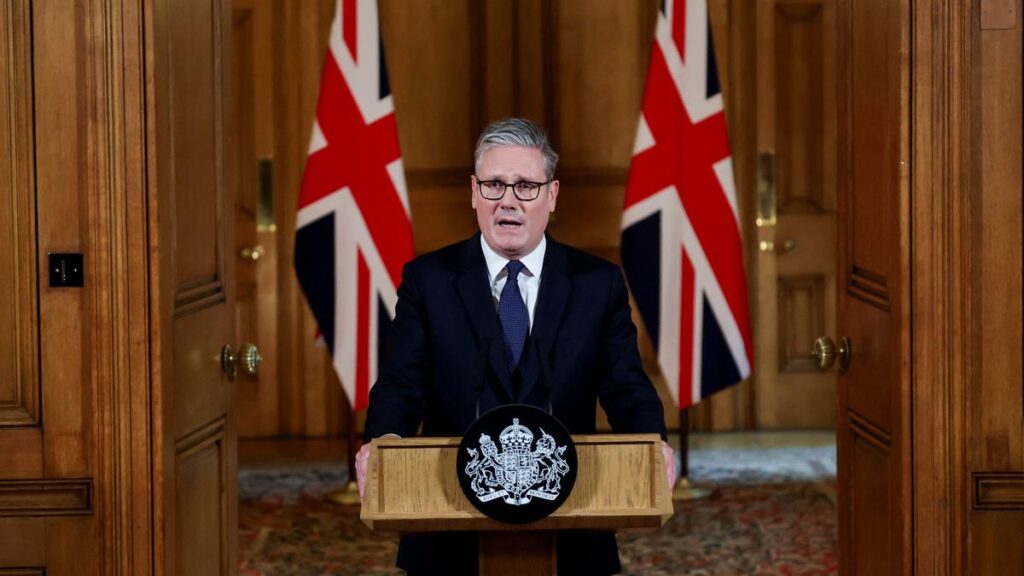British Prime Minister Keir Starmer has announced that the United Kingdom will formally recognize the State of Palestine during the upcoming United Nations General Assembly in September, unless Israel takes urgent and concrete steps to end the ongoing war in Gaza.
In a significant policy shift, Starmer emphasized the UK’s unwavering support for a two-state solution—a secure Israel coexisting with a viable and sovereign Palestinian state. He described the move as a strategic step to apply diplomatic pressure and keep the door to peace negotiations open.
The UK’s recognition is conditional, with the Prime Minister outlining specific expectations Israel must fulfill to prevent the declaration. These include:
- Agreeing to an immediate ceasefire to halt the humanitarian catastrophe in Gaza.
- Allowing at least 500 aid trucks per day into the Gaza Strip.
- Committing to a long-term peace process leading to a two-state solution.
- Publicly rejecting any annexation plans in the West Bank.
Starmer also urged Hamas to release hostages, disarm, accept the ceasefire proposal, and withdraw from administrative control of Gaza.
The announcement comes as global outrage intensifies over the deepening crisis in Gaza, where reports suggest over 60,000 Palestinians have died and famine conditions are worsening. The Israeli government has rejected the UK’s ultimatum, accusing London of emboldening Hamas and undermining ceasefire negotiations. Meanwhile, the United States has voiced concern over the UK’s plan, warning of its broader diplomatic implications but stopping short of outright opposition.
Domestically, Starmer is under rising pressure from within his own party, as over 250 Labour MPs back immediate recognition of Palestine. The UK’s stance aligns with a growing European initiative led by France, Spain, Ireland, Norway, and other nations, all expected to grant recognition in September.
If Israel fails to meet the stated conditions, the UK will proceed with formal recognition of the Palestinian state at the UN, marking a potentially historic turning point in Middle East diplomacy.

